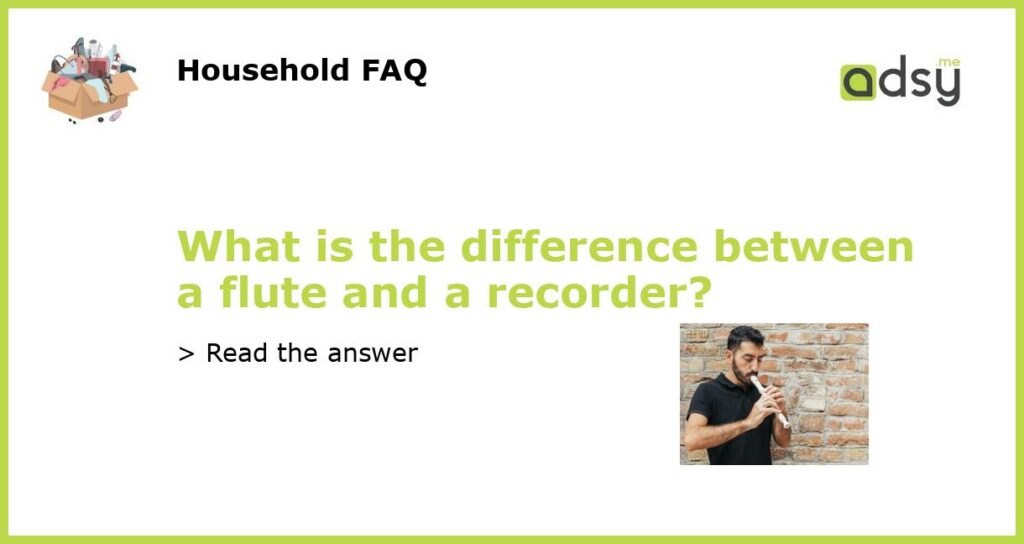Understanding the Flute and the Recorder
If you’re a music enthusiast or a student of music, you might be familiar with the flute and the recorder – two popular wind instruments. While they may look similar, there are some key differences between the two. This article aims to provide a clear understanding of the flute and the recorder.
The Flute
The flute is a wind instrument that is often made of silver, nickel, or gold. It produces sound by blowing air across the mouthpiece and through the instrument’s body. The player uses both hands to hold the flute while the fingers cover and uncover the instrument’s various holes to create different notes. Flutes are popular in a variety of musical genres, including classical, jazz, and contemporary music.
The Recorder
A recorder is also a wind instrument that is made of wood or plastic. Unlike the flute, which requires the player to blow across a mouthpiece, a recorder has a whistle-like mouthpiece that the player blows into directly. The instrument also has eight finger holes, plus a thumb hole, to create different notes. Recorders are commonly associated with traditional, folk, and early music genres.
Differences Between the Flute and the Recorder
While the flute and the recorder have some similarities, they also have some notable differences. Here are some key differences between the two:
- Construction: Flutes are typically made of metal, while recorders are made of wood or plastic.
- Mouthpiece: The flute has an open mouthpiece, while recorders have whistle-like mouthpieces.
- Finger placement: Flute players hold the instrument with both hands and use fingers to cover and uncover the holes. Recorder players use one hand to hold the instrument and the other hand to cover the holes.
- Sound quality: Flutes produce a clear and bright sound quality, while recorders have a mellow and softer sound.
- Musical genre: Flutes are commonly used in classical, jazz, and contemporary music, while recorders tend to be associated with traditional, folk, and early music.
While both the flute and the recorder are wind instruments, they have distinct differences that set them apart. Whether you prefer the clear sound of the flute or the mellow sound of the recorder, both instruments offer unique qualities that make them excellent choices for musicians of all levels.






